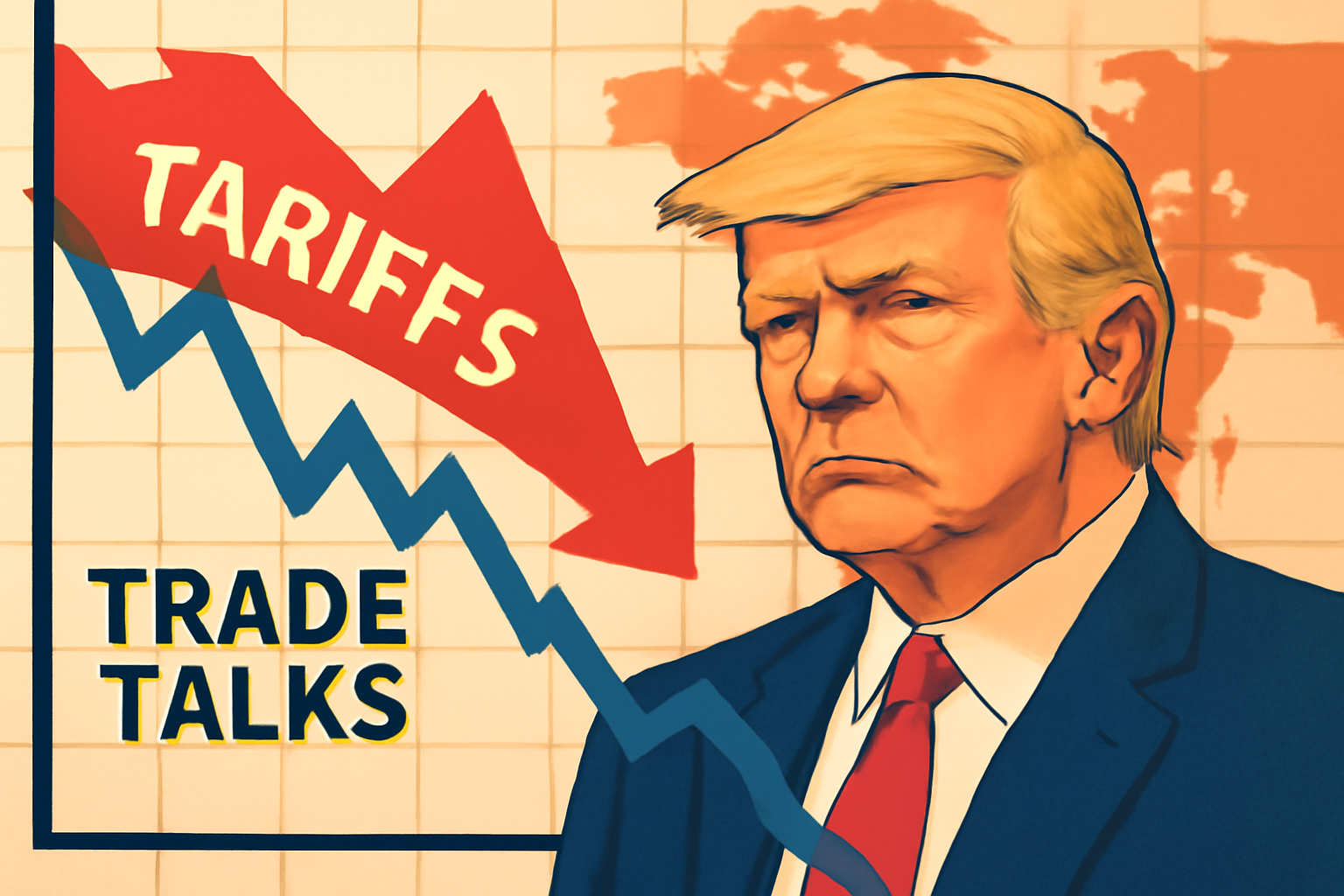President Donald Trump’s recent announcement of potential unilateral tariffs on key U.S. trade partners has sparked immediate concern across financial markets. On June 12, 2025, stock indices, including the S&P 500, saw declines, signaling investor anxiety about the fallout from these threats. With trade talks at a critical juncture and a July 9 deadline for new agreements looming, the situation remains fluid. The prospect of tariffs introduces significant uncertainty, making it crucial for investors to reassess their strategies and prepare for a potentially volatile market ahead.
Why This Matters for Investors
The tariff threats from President Trump have escalated the already tense atmosphere surrounding U.S. trade policies. Unilateral tariffs, if implemented, could disrupt global supply chains, increase production costs, and dampen international demand for American-made goods. This would likely lead to earnings downgrades for companies heavily reliant on exports, especially in sectors like technology, manufacturing, and consumer goods.
Markets generally dislike uncertainty, and these tariff threats only add fuel to the fire. While investors have grown accustomed to the ebb and flow of trade negotiations, the stakes are higher this time due to the looming July 9 deadline for a potential trade deal. If no resolution is reached by that time, the risk of tariffs becoming a reality increases, which could lead to further market declines and economic ramifications.
Impact on Key Sectors
- Technology: Tech companies, many of which rely on international supply chains, are especially vulnerable. The imposition of tariffs could significantly raise costs for companies importing components or materials from overseas. Investors in tech stocks should closely monitor trade developments and be ready for potential volatility.
- Consumer Goods: Companies that import raw materials for consumer products could face higher costs due to tariffs, which may lead to price increases for consumers. This could reduce demand for certain goods and negatively impact stock prices in this sector.
- Energy: The energy sector could also be affected if tariffs are imposed on oil and gas exports, particularly if the U.S. faces retaliatory tariffs on energy products. This would exacerbate existing price fluctuations and add to market uncertainty.
- Industrial Goods: Manufacturers, especially those relying on raw materials or components sourced internationally, would likely face higher costs. Additionally, global trade restrictions could hinder demand for U.S.-manufactured goods abroad, further impacting bottom lines.
Future Trends to Watch
- Trade Deal Outcome: The coming weeks will be crucial. Investors should remain vigilant and closely monitor developments in the trade talks, as any breakthrough or escalation could lead to significant market movements.
- Currency Fluctuations: Uncertainty surrounding tariffs often results in currency volatility. The U.S. dollar could weaken if tariffs are imposed, which could affect the profitability of U.S. multinational companies. Currency markets are likely to react quickly to any signs of escalating tensions.
- Shifts in Global Supply Chains: As trade policies evolve, companies may begin shifting their supply chains to avoid the impact of tariffs. Investors should look for signs of this shift and assess how companies are adapting to these changes. Sectors that benefit from diversification of supply chains may see opportunities arise.
Credible References
This analysis draws on the latest reports from credible sources such as the New York Post and Barron’s, both of which have highlighted the immediate market reactions to the tariff threat. According to experts, trade negotiations have reached a critical stage, and the outcome could heavily influence global markets. Analyst predictions suggest that the markets are on edge, with investors wary of the potential long-term consequences of tariff imposition.
Actionable Takeaways:
For investors, the key takeaway is to remain cautious in the face of potential tariff actions. Here are some practical steps investors can take:
- Diversify Investments: Spread investments across sectors and geographical regions to reduce exposure to any single area that may be heavily impacted by trade restrictions.
- Focus on Defensive Sectors: Consider shifting investments into defensive sectors such as utilities, healthcare, and consumer staples. These sectors tend to perform better during times of economic uncertainty and market volatility.
- Monitor Developments Closely: Stay updated on trade negotiations and political developments. Being informed will help you anticipate market movements and adjust your portfolio accordingly.
Stay informed with MoneyNews.Today for the latest insights and analysis on the evolving political and market landscape. Our expert coverage helps you make better investment decisions in a rapidly changing world.





